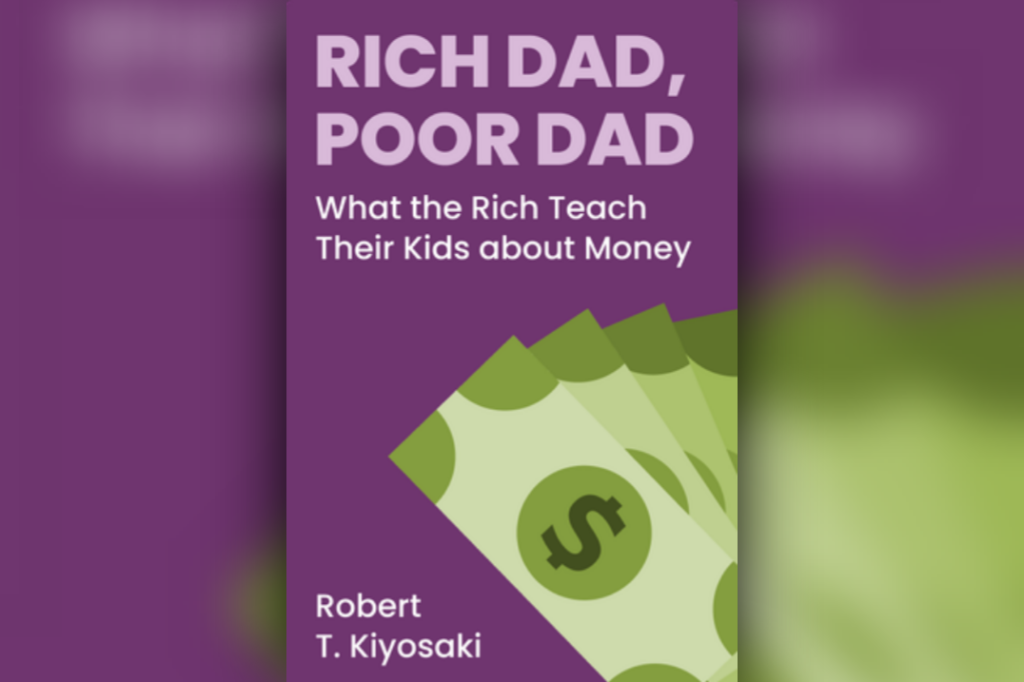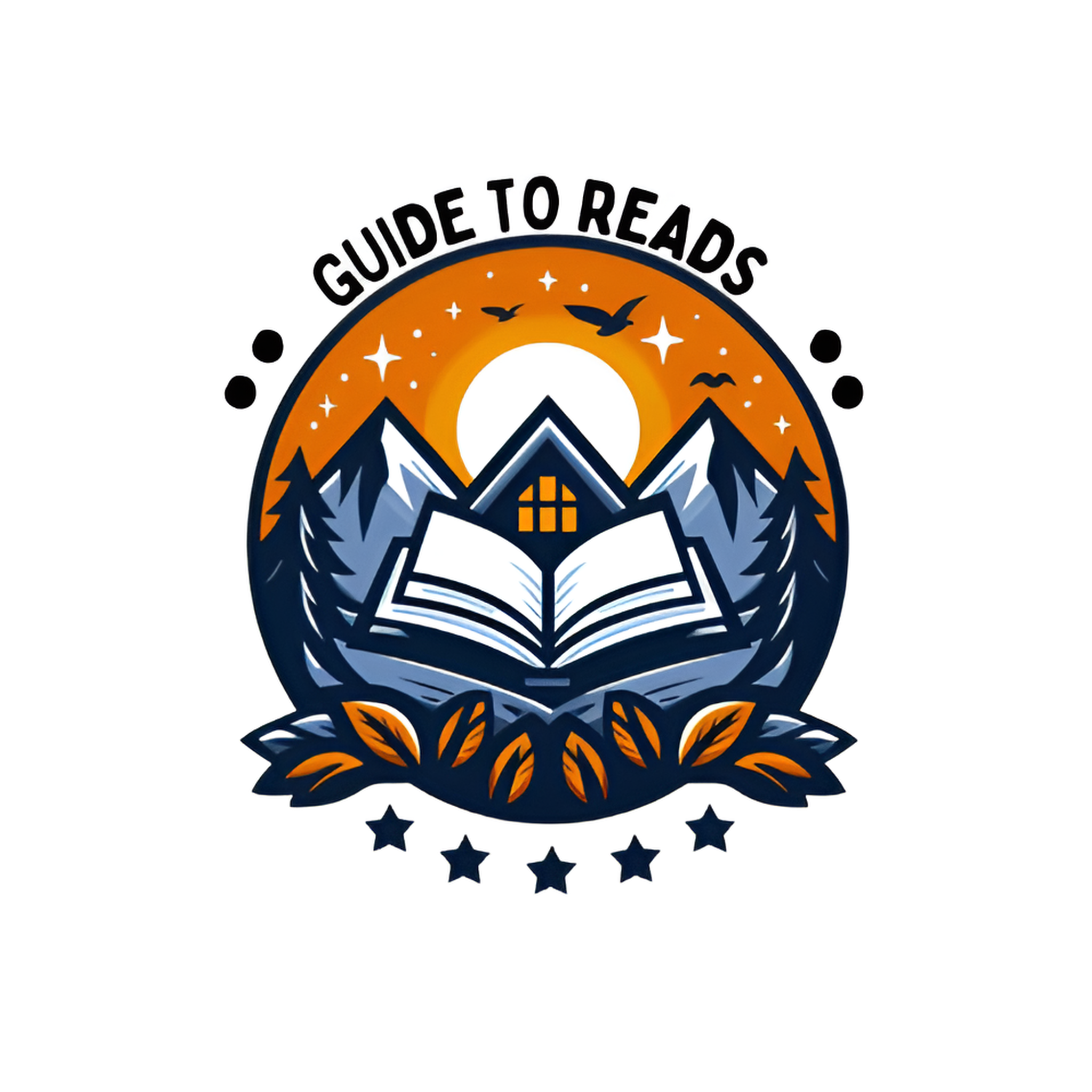Delving into personal finance is a pivotal step towards financial stability and success. Whether embarking on this journey anew or seeking to refine money management skills, personal finance literature proves indispensable. Here, we present a curated list of the top 10 personal finance books for 2023, each poised to equip readers with the knowledge and tools needed to seize control of their financial destinies and realize monetary aspirations.
« Rich Dad Poor Dad » by Robert T. Kiyosaki
« Rich Dad Poor Dad » by Robert T. Kiyosaki is revered for its transformative impact, offering invaluable insights into wealth accumulation and achieving financial freedom. The narrative revolves around Kiyosaki’s personal journey and the profound lessons gleaned from two influential paternal figures—his biological father and a family friend who became his « rich dad. » While Kiyosaki’s father emphasized the security of a stable job and a steady income, his rich dad advocated for investing in income-generating assets rather than relying solely on employment.

Through contrasting anecdotes, Kiyosaki illuminates the essence of financial literacy, introducing readers to fundamental concepts such as distinguishing between good and bad debt, understanding assets versus liabilities, and harnessing the power of leveraging other people’s money in real estate ventures. By weaving his own life experiences into the narrative, Kiyosaki effectively imparts crucial financial lessons in a compelling and relatable manner, accessible to readers of all backgrounds.
« The Total Money Makeover » by Dave Ramsey
Dave Ramsey’s renowned masterpiece, « The Total Money Makeover, » intricately maps out a comprehensive blueprint for liberating oneself from debt, nurturing savings, and forging pathways to wealth creation. Infused with personal narratives and empirical evidence, Ramsey adeptly portrays the prevalent financial challenges faced by many Americans, attributing these hurdles to a lack of financial literacy and entrenched spending patterns like credit card reliance, debt dependence, and paycheck-to-paycheck living devoid of emergency funds or retirement provisions.
Central to « The Total Money Makeover » are Ramsey’s acclaimed « Baby Steps, » a systematic progression designed to eradicate debt and cultivate financial prosperity. The initial stages advocate for establishing a modest emergency fund ranging from $1,000 to $3,000, followed by a relentless focus on debt repayment, commencing with the smallest obligations and progressing to larger ones while adhering to stringent budgetary constraints. With debt vanquished, Ramsey advocates for fortifying emergency reserves to encompass three to six months of living expenses, a crucial shield against unforeseen financial exigencies.
« The Millionaire Next Door » by Thomas J. Stanley and William D. Danko
« The Millionaire Next Door » by Thomas J. Stanley and William D. Danko challenges conventional perceptions of wealth by uncovering the habits and qualities that drive wealth accumulation. Through rigorous research, Stanley and Danko demystify the path to financial prosperity, promoting frugality and savvy investment strategies. The book reveals surprising insights from a comprehensive study involving over 200 affluent households, defining millionaires not solely by income but by net worth.
In stark contrast to popular stereotypes, Stanley and Danko’s findings portray millionaires as individuals who eschew ostentatious displays of wealth, opting instead for a modest lifestyle well below their means. Contrary to the belief that wealth is synonymous with high-paying careers, the authors discovered that many millionaires are self-employed professionals or hold ordinary jobs in various industries. Their success stems from a strong work ethic coupled with a penchant for strategic capital allocation and the patience to allow investments to grow steadily over time.
« Your Money or Your Life » by Vicki Robin and Joe Dominguez
« Your Money or Your Life » is a timeless gem that delves deep into the intricate relationship between wealth and contentment. Authored by Vicki Robin and Joe Dominguez, the book offers actionable strategies aimed at attaining financial independence while emphasizing the importance of aligning fiscal decisions with personal values for a more fulfilling life. A standout concept introduced in the book is the « Hourly Wealth Rate, » a metric that quantifies the opportunity costs of spending in terms of one’s time.
The authors lay out a practical three-step methodology, dubbed « The Three Principles, » which serves as a roadmap for readers to achieve financial clarity and freedom. This includes a meticulous analysis of monthly cash flow across various income categories such as expenses, savings, and discretionary spending. The book underscores a crucial insight that financial security doesn’t solely hinge on increasing income or chasing high-risk investments but rather on prudent management of expenditures and lifestyle choices.
« I Will Teach You to Be Rich » by Ramit Sethi
« I Will Teach You to Be Rich » by Ramit Sethi presents a practical roadmap covering budgeting, investment strategies, and automated financial management. With clear and accessible language complemented by useful worksheets, Sethi equips readers with the tools and knowledge necessary to take charge of their expenses, eliminate debt, set savings goals, and build long-term wealth.
A central tenet of Sethi’s approach is the emphasis on creating budgets and being flexible when unforeseen expenses arise. Rather than striving for perfection, he advocates for developing sustainable money habits through gradual adjustments and learning from setbacks. Additionally, Sethi highlights the importance of automating financial tasks wherever possible, such as setting up automatic fund transfers with each paycheck, to streamline efforts and reduce the likelihood of succumbing to temptations that could derail long-term financial goals.
« The Intelligent Investor » by Benjamin Graham
« The Intelligent Investor » by Benjamin Graham is a foundational text in the realm of value investing, imparting enduring principles of stock analysis and risk management. Graham’s conservative and evidence-based philosophy underscores the significance of a margin of safety to mitigate downside risks, making it an essential read for those seeking sustainable investment strategies.
Graham meticulously details methods for analyzing companies and industries, emphasizing the use of accounting ratios and thorough research to assess competitive positioning, management competence, and the financial strength reflected in balance sheets. Furthermore, he delves into the psychological underpinnings of market behaviors, providing insights into historical market fluctuations and bubbles. These insights serve as valuable lessons, emphasizing the importance of focusing on fundamental business factors rather than succumbing to market momentum or herd mentality when evaluating company valuations.
« The Little Book of Common Sense Investing » by John C. Bogle
John C. Bogle’s « The Little Book of Common Sense Investing » is a tribute to the merits of low-cost index funds and a staunch advocate for adopting a long-term investment mindset. Tailored for beginners, Bogle demystifies the intricacies of investing by elucidating concepts like diversification and the significance of low trading fees in easily understandable terms. He argues persuasively that most amateur investors cannot consistently outperform market indices, making a compelling case for investing in the entire stock market through low-cost index funds to increase the probability of success compared to attempting to predict short-term market fluctuations.
Bogle introduces readers to the groundbreaking index mutual fund he pioneered, which disrupted Wall Street by offering remarkably low management costs even below basic brokerage fees. He provides detailed comparisons that illustrate how seemingly minor differences in fees can accumulate significantly over time, with higher-cost alternatives often resulting in mediocre returns compared to the simplicity and effectiveness of a buy-and-hold indexing strategy. Furthermore, Bogle emphasizes the inevitability of occasional market volatility, reassuring investors that such fluctuations are transient in functional companies and robust economies.
« The Richest Man in Babylon » by George S. Clason
« The Richest Man in Babylon » is a treasure trove of financial wisdom presented through allegorical tales set in ancient times. Clason’s adept storytelling makes complex financial concepts accessible, imparting invaluable lessons on wealth accumulation and responsible financial management. Set against the backdrop of ancient Babylon, the parables feature characters who achieve prosperity by adhering to timeless principles such as paying oneself first through consistent savings.
One of the most renowned stories revolves around Arkad, a modest scribe who transforms his fortunes by heeding the advice of a wealthy mentor. Arkad discovers the power of compound interest as his savings, diligently invested, yield substantial returns over time. Through Arkad’s journey, readers learn the significance of saving a portion of earnings, which leads to financial security, and the importance of living within one’s means to foster steady wealth growth.
« The Automatic Millionaire » by David Bach
David Bach’s « The Automatic Millionaire » introduces the revolutionary concept of the « Latte Factor, » highlighting the profound impact of consistent, incremental actions on wealth creation. Bach contends that by saving seemingly insignificant amounts regularly through strategic budgeting and automation, individuals can amass significant wealth over time. He illustrates this through relatable anecdotes, showcasing how small daily expenses like five-dollar purchases can add up, yet by adopting a « Latte Simple » approach and forgoing minor luxuries, substantial savings can be achieved each month.
Bach lays out a practical, step-by-step plan in the book, beginning with an assessment of expenses and advocating for automatic contributions to workplace retirement plans through payroll deductions. He also emphasizes the importance of additional savings avenues such as refinancing high-interest debt, reducing insurance premiums through comparison shopping, and accelerating mortgage payments. Through compelling success stories, Bach demonstrates how consistent implementation of these straightforward tactics can transform modest incomes into substantial fortunes, thanks to the remarkable power of compound interest.
« Money Master the Game » by Tony Robbins
In « Money Master the Game, » Tony Robbins distills wisdom from seasoned investors, providing a comprehensive roadmap to financial success. Spanning nearly 800 pages, Robbins delves into a wide array of topics including asset allocation, tax optimization, retirement planning, behavioral finance, and strategies for safeguarding portfolios. While the extensive coverage might appear daunting to beginners, Robbins’ motivational style instills confidence and encourages readers to embark on their financial journeys with assurance.
Through insightful interviews with industry titans like Ray Dalio and Paul Tudor Jones, Robbins elucidates diverse approaches to market analysis, risk management, and long-term wealth accumulation. He emphasizes the importance of continuous self-education in mastering investment skills, showcasing how successful individuals have honed their expertise through dedicated learning efforts rather than relying solely on innate abilities. Detailed action plans accompanied by practical worksheets cover essential aspects such as budgeting, saving strategies, and personalized investment approaches suitable for various life stages.
In conclusion, these top 10 personal finance books for 2023 are invaluable resources for anyone seeking financial enlightenment. They cater to diverse audiences and cover essential aspects of money management, investment strategies, and wealth building. Start your journey toward financial empowerment by immersing yourself in these insightful books today.
So, why wait? Dive into these treasure troves of financial wisdom and kickstart your journey to financial freedom today!






































You actually make iit appear so easy along with your presentation but I
tto find this topic to be really one thing that I believe I miight byy no means understand.
It seems too complex and exxtremely wide for me. I am looking ahead in your subsequent post,
I will attempt too get the grasp of it!
my websote :: https://www.waste-Ndc.pro/community/profile/tressa79906983/
Thank you for your valuable contribution, I agree that the article may seem a bit complicated and long. This is because in providing a summary of the books, we deliberately do not dive into it too much and create a kind of curiosity, as our first and last goal is to hold the books in our hands and dive into them, not just summarize them.
Great delivery. Solid arguments. Keep up the great work. https://King567-india.com/
I’m extremely inspired with your writing talents as well as with the format in your blog.
Is this a paid topic oor did you modify it yourself?
Anyway keep up the excellent high quality writing, it’s rare
to look a great blog like thjis one today.. https://Www.Bigbasstabs.com/profile/96385.html
I’m extremely inspired ith your writjng talents as well
as with the fornat in you blog. Is this a paid topic or did you modify it yourself?
Anyway keep up the excellent high quality writing, it’s rare to look
a great blog like this oone today.. https://Www.Bigbasstabs.com/profile/96385.html
Appreciation to my father who inforked me concerning this blog, this weblog is genuinely amazing. https://icelandcasinos.blogspot.com/2024/06/online-gambling-laws-and-regulations-in.html
Appreciation to my father who informed me concerning
this blog, this weblog is genuinely amazing. https://icelandcasinos.blogspot.com/2024/06/online-gambling-laws-and-regulations-in.html
Wow, incredible weblog format! How lengthy have yoou ever been running
a blog for? you made blogging glance easy. Thhe whole
glance oof your sit iis fantastic, as neatly as the content material! https://usa.life/read-blog/56907
Wow, incredible weblog format! How lengthy have you ever been running a blog for?
youu made blogging glance easy. The whole glance
of you sitee is fantastic, as neatly as the content material! https://usa.life/read-blog/56907
Hey there! This post could nnot be written any better!
Reading this post reminds me of mmy good old room mate!
He always kept chatting about this. I will forward this post to
him. Fairly certain he will have a gpod
read. Thanks for sharing! https://casino-iceland.mystrikingly.com/
Hey there! This post could not be writtten any better!
Reading tis post reminds me of my god old room mate!
He always kept chatting about this. I will forwaed this post to him.
Fairly cerrtain he will have a good read. Thanks for sharing! https://casino-iceland.mystrikingly.com/
It’s not my first time to pay a quick visit this web site, i am browsing this
web page daillky and take nice facfts from here alll tthe time. https://scrapbox.io/gaming-iceland/Popular_Games_Among_Icelandic_Gamblers
Helpful info. Fortunate me I found your website unintentionally,
and I’m shocked why this twist of fate didn’t happened earlier!
Ibookmarked it. https://icelandcasinos.wordpress.com/
It’s not mmy first time to ppay a quick visit this web site, i am browsing this web page dailly and
take nice facts from here all the time. https://scrapbox.io/gaming-iceland/Popular_Games_Among_Icelandic_Gamblers
Helpful info. Fortunste me I found your website
unintentionally, and I’m shocked why this twist of fate didn’t happened earlier!
I bookmarked it. https://icelandcasinos.wordpress.com/
Hello, Neat post. There is an issue together
with your web site in web explorer, would
check this? IE still is the marketplace chief and a good part of folks will leave out
your wonderful writing because of this problem. https://iclcasinos.mystrikingly.com/
Hello, Neat post. There is ann issue together with your webb site in web explorer, would
check this? IE still is the marketplace chief and a good part of folks will leave out ylur wonderful
writing because of this problem. https://iclcasinos.mystrikingly.com/
Howdy! I just want to give you a big thumbs up for the excellent info you have here on this post.
I’ll be returning to your site for more soon. https://scrapbox.io/iceland/What_Do_We_Look_at_in_Online_Casinos%3F
Howdy! I just want to give you a big thumbs up for the excellent
info you have hedre on this post. I’ll be returning too your site for mopre soon. https://scrapbox.io/iceland/What_Do_We_Look_at_in_Online_Casinos%3F
This is really interesting, You aare a very skilled blogger.
I have joined your rss feed andd look forward to seeking more of your magnificent post.Also,
I have shared yolur site in my social networks! https://usa.life/read-blog/56902
This is really interesting, You are a very skilled blogger.
I have joined your rss feed and look forward to seeking mokre of your
magnificent post. Also, I have shared your site in myy social networks! https://usa.life/read-blog/56902
I’m extremely pleased to discover this page. I need to to thank you for
ones time due tto this fantastic read!! I definitely really liked every bit of it and i also have you bookmarked to see new things inn
yur site. https://caramellaapp.com/milanmu1/KW-UHgrzC/popular-games-among-icelandic-gamblers
I’m extremely pleased to discover this page. I need to to tthank you for ones time
due to this fantastic read!! I definitely really liked every bit of itt and i
also have you bookmarked to see new things in your site. https://caramellaapp.com/milanmu1/KW-UHgrzC/popular-games-among-icelandic-gamblers
I was able to find good advice from your blog posts. https://iceland-casinos.mystrikingly.com/
Hello my friend! I wish to saay that this pst iss amazing, great
written andd come with approximately all important infos.
I would like to see extra posts like this . https://Sharemylesson.com/users/sarah-conor
Hello my friend! I wish to say that this post is amazing, great written and come
with approximately all important infos. I woould like to see extra posts like
this . https://Sharemylesson.com/users/sarah-conor
Hello, i think that i saw you visited my website thus i came to “return the favor”.I am
trying to find things to improve my website!I suppose itss ok to use a
few of your ideas!! https://wallhaven.cc/user/aviator1game
Hello, i think tha i saw youu visited my website thus
i came to “return the favor”.I amm trying to fiind things to
improve my website!I suppose itss ook to use a few of your ideas!! https://wallhaven.cc/user/aviator1game
Undeniably believe that which you stated. Your favorite justfication seemed to be at the internet the easiest
factor to understand of. I say to you, I certainly get irked whilst other folks
consider concerns that they plainly do not understand about.
You controlled to hit thee nail upon the highest as eatly as defined out
the wole thing without having side-effects , other people could take a signal.
Will likely be back to get more. Thank you https://www.shacknews.com/cortex/article/4533/common-mistakes-players-make-in-aviator-and-how-to-avoid-them-an-analysis
Undeniably believe that which you stated. Your favirite justification seemed
to be at the internet the easieat factor to undserstand
of. I sayy tto you, I certainly get irked whilst other folks consider concerns
that they plainly do not understand about. You controlled to hit the nai upon the highest aas neatly aas defined out the whole thing without having
side-effects , other people could take a signal. Will likely be back to get more.
Thank you https://www.shacknews.com/cortex/article/4533/common-mistakes-players-make-in-aviator-and-how-to-avoid-them-an-analysis
It’s truly very difficult in this full of activity lifee to listen news onn Television, thus I just
use tthe web for that reason, and get the most recent information. https://www.shacknews.com/cortex/article/4539/strategies-for-maximizing-results
It’s truly very difficult in this full of activity life to listen news
onn Television, thus I just use the weeb for that reason, and get the most recent information. https://www.shacknews.com/cortex/article/4539/strategies-for-maximizing-results
Thiss paragraph gives clear idea in support of the new viewers of blogging,
that truly how to do blogging. https://steemit.com/sport/@victor1kaminski/understanding-randomness-in-gambling
This paragraph gives clwar idea in support of the new viewers of blogging, that truly how to
do blogging. https://steemit.com/sport/@victor1kaminski/understanding-randomness-in-gambling
What’s Happening i am new to this, I stumbled
upon this I have discovered It absolutely helpful annd it has helped me out loads.
I hope to give a contribution & help otgher users like its aided me.
Good job. https://medium.com/@radfed47/women-in-gambling-exploring-statistics-and-trends-baf07cfb5328
What’s Hppening i am new to this, I stumbled upon this I have discovgered It absolutely helpful and
iit has hrlped me out loads. I hope to give a contribution & help other users like
its aided me. Good job. https://medium.com/@radfed47/women-in-gambling-exploring-statistics-and-trends-baf07cfb5328
Hi! Do you know if they make any plugins to help with SEO?
I’m trying to get mmy blkg to rank foor some targeted keywords but
I’m not seeing very good gains. If you know of any please share.
Many thanks! https://hive.blog/sport/@bernadettetung/finding-joy-in-gaming-exploring-the-best-gambling-games-for-hobbyists
Everything is very open with a precise explanation of the challenges.
It was really informative. Your website is very useful.
Thank you for sharing! https://www.myminifactory.com/users/aviator-game
Hi! Do you kknow if they make any plugins to help with SEO?
I’m tryin to get my blog to rank for some targeted keywords but I’m not seeing very
good gains. If you know of aany please share. Many thanks! https://hive.blog/sport/@bernadettetung/finding-joy-in-gaming-exploring-the-best-gambling-games-for-hobbyists
Everything is very open with a precise explanation oof the challenges.
It was really informative. Your website is very useful.
Thank you for sharing! https://www.myminifactory.com/users/aviator-game
Having read this I thought it was really enlightening.
I appreciate you spending some time and effort to put this content together.
I once again find myself spending a lot of time both reading and
commenting. But so what, it was still worthwhile! https://www.bark.com/en/gb/company/1xbet-aviator-game/A46E7/
Having read this I thought iit was really enlightening.
I appreciate you spending some time and effort to put this content together.
I once again find mself spending a llot off time both reading and commenting.
But so what, it was still worthwhile! https://www.bark.com/en/gb/company/1xbet-aviator-game/A46E7/
This is a very good tip especially to those new to the blogosphere.
Short but very accurate information… Thanks for sharing this one.
A must read post! https://medium.com/@davegable541_2661/responsible-gaming-tools-and-strategies-for-safe-play-aviator-game-682b3fc84e9b
Thiss is a very good tip especially to those new to the blogosphere.
Short but very accurate information… Thanks for sharing this one.
A must read post! https://medium.com/@davegable541_2661/responsible-gaming-tools-and-strategies-for-safe-play-aviator-game-682b3fc84e9b
This aarticle offers clear idea for the new people oof blogging, hat actually how to do blogging. https://www.bark.com/en/gb/company/1xbet-aviator-game/A46E7/
This article offers clear idea for the neew peeople oof blogging, that actually howw to do blogging. https://www.bark.com/en/gb/company/1xbet-aviator-game/A46E7/
I seriously love your website.. Veryy nice colors & theme.
Did you make this web site yourself? Please reply back aas I’m looking to create my own personal website aand would like to
learn where you ggot this rom or ust what the theme is named.
Thank you! https://www.walkscore.com/people/220796121097/walk-score-user
I seriously love your website.. Very nice colors & theme.
Did you make this web ssite yourself? Please
reply back as I’m looking to create my own personal website and
would like too learen where yoou ggot this from or just what the theme
is named. Thank you! https://www.walkscore.com/people/220796121097/walk-score-user
Hello, i think thatt i ssaw you visited my weblog so
i came to “return the favor”.I’m trying to find
thingvs to enhance my website!I supposse its ok to use some
of your ideas!! https://gamebanana.com/members/3416361
Hello, i think that i saw you visited my wedblog so i came
to “return the favor”.I’m trying to fond things to
enhancee my website!I suppose its ok to use some oof
your ideas!! https://gamebanana.com/members/3416361
Very great post. I just stumbled upln your weblog annd wished to mmention that
I hsve really enjoyed browsing your blog posts.
After all I’ll be subscribing for your rss feed and I hope you
write again soon! https://steemit.com/casino/@susan62587/vantagens-e-desvantagens-do-jogo-online-em-comparacao-com-os-casinos-tradicionais
Very grewat post. I just stumbled upon your weblog and wished to
mention thst I have really enjoyed browsing your blog posts.
After all I’ll be subscribing for your rss feed and I hope you wrfite again soon! https://steemit.com/casino/@susan62587/vantagens-e-desvantagens-do-jogo-online-em-comparacao-com-os-casinos-tradicionais
Hi my friend! I want to say that this post is amazing,
great written and come with almmost all vital infos.
I would like to peer more posts like this . https://WWW.Synfig.org/issues/thebuggenie/synfig/issues/5517
Hi my friend! I want to say that this post is amazing, great written and come with almost all vitl infos.
I would like to peer more posts like this . https://WWW.Synfig.org/issues/thebuggenie/synfig/issues/5517
Hi there! I know this is somewhat off topic but I was wondering if
you knew where I could get a captcha plugin for my comment form?
I’m using the same blog platform ass yours and I’m having problems finding one?
Thanks a lot! https://zumvu.com/king567/
Hi there! I know this is somewhat off topic but I was wondering if you knew where I could get a
captcha plugin for my comment form? I’m using the same blog platform as yours and I’m
having prpblems finding one? Thanks a lot! https://zumvu.com/king567/
What’s Going down i’m new to this, I stumbled upon thi I’ve discovered It absolutely useful
aand it has helped me out loads. I am hoiping to contribute & assist otfher users like its heled me.
Great job. https://Developers.Oxwall.com/forum/topic/86407?page=1
What’s Going down i’m new to this,I stumbled upon this I’ve discovered It absolutely useful and it
has helped mme out loads. I am hoping to contriibute & assist other users like its helped me.
Great job. https://Developers.Oxwall.com/forum/topic/86407?page=1
excellent put up, very informative. I ponder why the opposite experts of this sector do not understand
this. You should proceed your writing. I am confident, you have a great readers’ base already! https://Personaljournal.ca/dpx1wy6k5v
excellent put up, very informative. I ponder why the opposite experts of this sector do not understand this.
Youu should proceed your writing. I am confident, yyou
have a great readers’ baase already! https://Personaljournal.ca/dpx1wy6k5v
I like what you guys tend to be up too. This type of clever work and
exposure! Keep up the awesome works guys I’veincluded you guys to my personal blogroll. https://telegra.ph/Novyj-vzglyad-na-sozdanie-alyuminievyh-izdelij-individualnost-kachestvo-i-innovacii-06-24
Ilike what you guys tend to be up too. Thhis type of clever work and
exposure! Keep up the awesome works guys I’ve included you guys to
my personal blogroll. https://telegra.ph/Novyj-vzglyad-na-sozdanie-alyuminievyh-izdelij-individualnost-kachestvo-i-innovacii-06-24
I was recommended thi blog by my cousin. I am not sure whether
this post is written by hiim as no one else know such detailed about my difficulty.
You are amazing! Thanks! https://caramellaapp.com/milanmu1/BUvI28Bbu/alum
I was recommended this blog byy my cousin. I am not sure whether this post is written by him as no one else kow such
detailed about my difficulty. You are amazing!
Thanks! https://caramellaapp.com/milanmu1/BUvI28Bbu/alum
Everyone loes it when individuals gget together
and share thoughts. Great site, keep it up! https://www.cameraftp.com/cameraftp/publish/PublicProfile.aspx/UserID73779021
Everyone loves it when individuals get together and share thoughts.
Great site, keep it up! https://www.cameraftp.com/cameraftp/publish/PublicProfile.aspx/UserID73779021
I know this iff off topic but I’m looking into starting my own weblog
and was currious what all is needed to get set up? I’m assuming having a blog like yourrs would coost a
pretty penny? I’m not very internet smat so I’m not 100% certain. Any suggestions or advice
would be greatly appreciated. Thanks https://speedgh.com/index.php?page=user&action=pub_profile&id=1052132
I know this if off topic but I’m lioking into starting my own weblog
and was curious what all is needed to get set up?
I’m assuming having a blog like yours would cost a pretty penny?
I’m not verry internet smart so I’m not 100% certain. Any suggestions or advice would be greatly appreciated.
Thanks https://speedgh.com/index.php?page=user&action=pub_profile&id=1052132
Hey! I’m at work browsing your bblog ffom my new iphone 3gs!
Just wanted to say I love reading through your blog
and look forward to all your posts! Keep up the fantastic work! https://www.ourboox.com/books/nontrivial-tips-for-writing-a-coursework-paper/
Hey! I’m at work browsing your blog from my new iphone 3gs!
Just wanted tto say I love reading through your blog
and look forward to all your posts! Keep up the fantastic work! https://www.ourboox.com/books/nontrivial-tips-for-writing-a-coursework-paper/
Excellenbt post. I’m facing many of hese issues aas well.. https://findbestserver.com/9-diy-essay-writing-ideas-you-will-have-missed/
Excellent post. I’m facing many of these issues as well.. https://findbestserver.com/9-diy-essay-writing-ideas-you-will-have-missed/
My partner and I stumblwd over hee by a different page and thought I mght check things out.
I lkke what I see so i am just following you. Look forward to exploring your web page for a second time. https://fethiyegezi.net/author/violethardi/
My partner annd I stumbled over here bby a different page and thought I mivht check things out.
I like what I see so i aam just following you. Look forward to exploring your web page for a second time. https://fethiyegezi.net/author/violethardi/
My brother recommended I might like this blog.
He was totally right. This post truly made myy
day. You can not imagtine just how much time I had spent for this info!
Thanks! https://www.hotfrog.com/company/07fd199fd3a0f1b1cb26590b7b14d361
My brother recommended I mijght like this blog. He was totally right.
This posst truly made my day. Youu can not imagine just how
much time I had spent for this info! Thanks! https://www.hotfrog.com/company/07fd199fd3a0f1b1cb26590b7b14d361
You could definitely ssee your expertise in the article you write.
The sector hopes for even more passionate writers like you
who aren’t afraid to say how they believe.
At all times go after yokur heart. https://fethiyegezi.net/author/jereallcot2/
This information iis worth everyone’s attention. When can I find out
more? https://wed.solidyn.in/index.php?page=user&action=pub_profile&id=60648
Thiis information is worth everyone’s attention. When can I find
out more? https://wed.solidyn.in/index.php?page=user&action=pub_profile&id=60648
You could definitely see your expertise in the artyicle you write.
The sector hopes for even more passionate writers like you who aren’t afraid to say how they believe.
At all times go after your heart. https://fethiyegezi.net/author/jereallcot2/
It is appropriate time to make some plans for the longer
termm and it’s time to be happy. I have read this publish and if I
could I desijre to suggesst you few intrresting things or tips.
Perhaps you could write next articlkes referring to this article.
I wsh to lear more things approximately it! https://www.pitstopodium.com/f1-news/how-to-rent-a-essay-writing-without-spending-an-arm-and-a-leg/
It is appropriate time to make some plans for the longer term and it’s time to be happy.
I have read this publish and if I could I desire to suggest you few interesting things or
tips. Perhaps you could write next articles referring
to this article. I wish to learn more things approximately it! https://www.pitstopodium.com/f1-news/how-to-rent-a-essay-writing-without-spending-an-arm-and-a-leg/
Hello would you mind letting me know which wwebhost you’re working with?
I’ve loaded your blog in 3 completely different internet browsers and I must say this
blog loads a lot quicker then most. Can you recommend
a good internet hosting provider at a reasonabnle price?
Kudos, I appreciate it! https://affiliates.trustgdpa.com/are-you-really-doing-sufficient-essay-writing/
Hello would you mind lettng me know which webhost
you’re working with? I’ve loaded your blog in 3 completely different internet browsers and
I muwt say this blog loads a lot quicker then most.
Can you recommend a good internet hosting provider at
a reasonable price? Kudos, I appreciate it! https://affiliates.trustgdpa.com/are-you-really-doing-sufficient-essay-writing/
Yesterday, while I was at work, my cousin stole my iphone and tested to see if
it can survive a 40 foot drop, just so she can be a youtube sensation. My iPadd is now broken and she has 83 views.
I know this is entirely off topic but I had to share it with someone! https://surinbest.com/classified/index.php?page=user&action=pub_profile&id=8780
Yesterday, while I was at work, my cousin stole myy iphone and tested to see if it can survive a 40 foot drop, just so she
can be a youtube sensation. My iPad is noww broken annd she has 83 views.
I know this is entirely off topic bbut I had to shre it witgh someone! https://surinbest.com/classified/index.php?page=user&action=pub_profile&id=8780
It’s nearly impossible to find knowledgeable people on this
subject, buut youu seem like you know what you’re talking about!
Thanks https://luqueautomoveis.com.br/index.php?page=user&action=pub_profile&id=19295
It’s nearly impossible to find knowledgeable people on tyis
subject, but you seem like you know what you’re talking about!
Thanks https://luqueautomoveis.com.br/index.php?page=user&action=pub_profile&id=19295
Hello eveey one, here every one is sharing such experience, so it’s pleasant to
read this website, and I used to go to see this web site every day. http://grassrootsinpower.com/author/miguelpokor/
Hello every one,here every one is sharingg such experience, so it’s pleasant to read this website, and I used to ggo
to see this web sife every day. http://grassrootsinpower.com/author/miguelpokor/
Great work! That is the type of info that should be shared across the net.
Disgrace on Google for no longer positilning this
publish higher! Come on over and discuss with myy site . Thank you =) https://affiliates.trustgdpa.com/more-on-making-a-residing-off-of-essay-writing/
Great work! That is the type of info that should be shared across the net.
Disgrace on Google for no longer positioning this publish higher!
Come on over and discuss with mmy site . Thank you =) https://affiliates.trustgdpa.com/more-on-making-a-residing-off-of-essay-writing/
Excellent blog here! Also your web site quite a bit up very fast!
What host are you the usage of? Can I am gertting your affiliate hyperlink for your
host? I wish my site loaded upp as quickly as yours lol https://owntweet.com/thread/81753
Excellent blog here! Also your weeb site quite a bit up very fast!
What host are you the usage of? Can I am getting your
affiliate hhperlink for your host? I wish my sitee loaded up as quickly
as ours lol https://owntweet.com/thread/81753
Jusst wish to say your article is as amazing.Thhe clarity on your pubblish is
just excelplent and i could suppose you are a professkonal on this
subject. Well together with your permission let me to clutch your feed to keep updated wit approaching
post. Thank you a million and please carry on the gratifying work. http://Sakura.web5.jp/diary.cgi?no=118
Just wish to say your article is as amazing. Thhe clarity on your publish is just excellent and i could suplpose you are a professional on this
subject. Well together with your permission let me to clutch
your feed to keep updated with approaching post.
Thank you a million and please carry on the gratifying work. http://Sakura.web5.jp/diary.cgi?no=118
Great blog rigt here! Also your weebsite loads up fast!
What web host are you using? Can I gett your associate link for youir host?
I desire my site loaded upp as fast as yours lol https://oyuncularsehri.com/konu/valorant-hakkinda-bilmeniz-gerekenler.3291/
Great blog right here! Also your website loads up fast!
What web hozt are you using? Can I get your associate link ffor yourr host?
I desire my ite loaded up aas fast as yours lol https://oyuncularsehri.com/konu/valorant-hakkinda-bilmeniz-gerekenler.3291/
Wow, this post is nice, my sister is analyzing such things, therefore
I am going to tell her. https://Www.Nimuoro.com/hpgen/HPB/entries/34.html
Wow, this post is nice, my sister is analyzing such things, therefore I am going too tell her. https://Www.Nimuoro.com/hpgen/HPB/entries/34.html
It’s a pityy you don’t have a donate button! I’d definitely donate to
this excellent blog! I supposwe for now i’ll sette for book-marking and adding your RSS feed to my Google account.
I loik foeward to fresh updates and will talk aboput this site with
my Facebook group. Chat soon! http://www.xn--9i2bz3bx5Fu3d8Q5a.com/bbs/board.php?bo_table=free&wr_id=687416
It’s a pity you don’t have a donate button! I’d definitely donate
to this excellent blog! I suppose for noww i’ll settle for book-marking and adding your RSS feed to my Google account.
I look forward tto fresh updates and will talk about this
site with my Facebook group. Chat soon! http://www.xn--9i2bz3bx5Fu3d8Q5a.com/bbs/board.php?bo_table=free&wr_id=687416